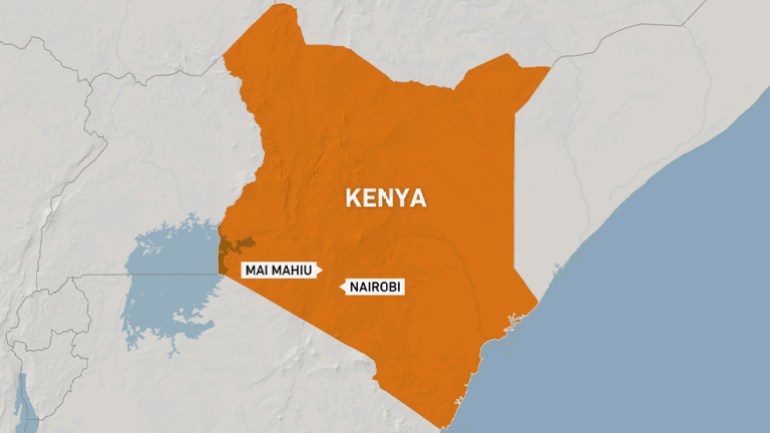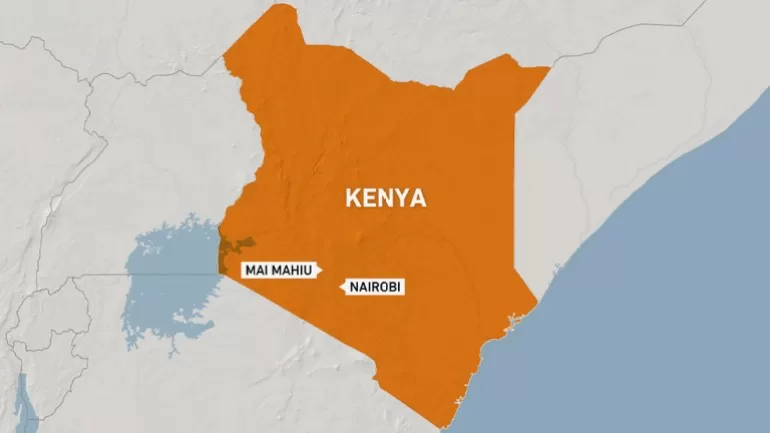Rains have been ravaging Kenya since March during some of the most catastrophic weather events in the country for years. Now, Cyclone Hidaya is expected to hit Kenya and neighbouring Tanzania late on Friday, which could further worsen the flooding. This comes amid recent heavy rainfall across East Africa.
Here is more about the floods in Kenya so far:
How many people have been killed and injured in Kenya’s floods?
The flooding has wreaked havoc in Kenya, causing death and destruction. Here are the latest figures from Kenya’s Ministry of Interior on Friday:
- At least 210 people have been killed, including 20 in a recent 24-hour period, and 125 have been injured.
- Ninety people have been reported missing with dozens believed to be lost under the debris.
- About 3,100 households have been displaced.
- The schools that have been destroyed number 1,967.
“There are many people who cannot be found. Many of my neighbours cannot be found,” Jane Wambui, a flood survivor, told Al Jazeera.
Many of those who have been worst affected by the flooding live in informal settlements, such as Nairobi’s Mathare, where residents have accused the government of neglecting them.
“The government says they deployed the military and the national youth service and they are stepping up search and rescue missions, but where are they? It has been a week, and where are they? I have not seen anyone here in Mathare. Not one person from the government has come to help us,” Mathare resident Collins Obondo said.
URGENT ALERT: After the heavy rains last night, Mathare 4A has flooded again this morning at 2 am. We desperately need tents to pitch across higher ground in Mathare, especially for children & pregnant women. Please contact: 0705577474 @KenyaRedCross @SakajaJohnson @FoundationGf
— Mathare Social Justice Centre (MSJC) (@MathareSJustice) April 29, 2024
Where in Kenya is the flooding the worst?
In the town of Mai Mahiu in southern Kenya, a dam burst on Monday, killing at least 48 people.

Mai Mahiu in Nakuru County is west of the capital, Nairobi, which is expected to be hit by more heavy rains, according to a warning issued on X on Friday by Kenya’s Meteorological Department.
🌧️ Attention Nairobi Metropolitan Residents! Prepare for HEAVY to VERY HEAVY rainfall this Friday. Stay weather-aware! Keep updated with https://t.co/NHZNDsKHAW.
For further details, please visit our website at https://t.co/NHZNDsKHAW, pic.twitter.com/X4J64irk2H— Kenya Met Department 🇰🇪 (@MeteoKenya) May 3, 2024
What has caused the flooding in Kenya?
While climate events such as El Nino – the warming of the surface water of the Pacific Ocean, which causes heavy rainfall in some parts of the world – have been linked to the increase in rain, many Kenyans believe the flooding has been exacerbated by lack of investment by the government.
In Mathare, locals blamed the flooding on poorly maintained, frequently blocked drains that have caused water to accumulate.
Flood survivor Nahason Igeria told Al Jazeera: “This was caused by the state national Railways Corporation. They are the ones who built the culvert downstream and the tunnel upstream. It should be their responsibility to maintain the system.”
On Thursday, Human Rights Watch published findings that low-income neighbourhoods, such as Mathare, had been severely impacted by the floods due to “less solid structures, congestion and poor sanitation infrastructure”.
In a statement, Greenpeace Africa Executive Director Oulie Keita said the floods are a “stark reminder of the human cost of the climate crisis”, adding, “Some of the damage was further worsened by misinformed development.”
How has the Kenyan government responded to the floods?
In anticipation of Cyclone Hidaya, President William Ruto’s government has ordered mandatory evacuations for residents living close to 178 dams and water reservoirs in 33 counties.
During his national address to the nation on Friday, Ruto said he had directed the Ministry of Education to postpone the reopening of schools for their second term until further notice. Besides the schools destroyed since March, many other schools are being used to shelter those who have been displaced by the floods.
Ruto’s approach to managing the floods has been criticised by residents of Mai Mahiu and of several informal settlements that have been devastated by floodwaters.
Human Rights Watch said the government failed to act following the Meteorological Department’s warnings in May last year that Kenya would experience enhanced rainfall due to El Nino and it would continue into 2024.
While the government set aside at least 10 billion Kenyan shillings ($80m) in preparation for a nationwide response, it did not outline a plan of action. In October, Ruto mistakenly said Kenya would not experience El Nino rainfall as had been predicted.
The Meteorological Department now expects the rainfall to continue until June.
What impact is Cyclone Hidaya expected to have?
Cyclone Hidaya is likely to result in “heavy rainfall, large waves and strong winds that could affect marine activities in the Indian Ocean”, the presidential office said.
The cyclone is also expected to make the search for the bodies of those missing and feared dead even more difficult, experts said.
